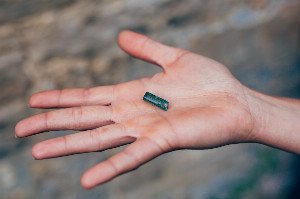Wildan Azka Taslimi, Niken Yuniar Sari, Tiara Ananda, Maisyaroh Putri Nisa, Theressa Dwi Vany Situmorang, Yuliana Fitriyanti, Susfika Mei Sari Nur, Yuli Amelia Putri, Wiwik Kurniasih, Dian Kahfi Rivya, Cindy Iony Pramesti, Herlina Herlina
Effort Decrease Stress Through Education Management Stress in the Adolescent Age Group
Introduction
Effort decrease stress through education management stress in the adolescent age group. Discover how health education effectively increases knowledge and abilities in adolescents for stress management, reducing negative impacts and promoting well-being.
Abstract
Stress is a problem that often arise due to an imbalance between demands and abilities, result in physical and psychological disorders. Prolonged stress experienced during adolescence can result in negative impacts such as depression. The aim of this service is to increase the knowledge and abilities of teenagers about stress and stress management among teenage students at Nurul Falah Middle School, Sialangrampai Village, Kulim, Pekanbaru City, Riau. The method used was lecture explanations, questions and answers and demonstrations given by the presenters to Nurul Falah Middle School students. US a result of this activity, it was found that there was a significant increase in knowledge, with the aver age participant understanding score increasing from 40 to 80. From these results, it can be concluded that health education is effective in increasing teenagers' knowledge regarding stress and how to manage stress in teenagers.
Review
This paper addresses a highly relevant and critical issue: adolescent stress and the potential for educational interventions to mitigate its effects. The title clearly states the aim to explore how educational efforts in stress management can decrease stress among adolescents, a population particularly vulnerable to the negative impacts of chronic stress. The abstract highlights the importance of the problem, citing potential negative outcomes like depression, and proposes a direct service activity to address it. The immediate goal of increasing knowledge and abilities regarding stress and stress management among middle school students is well-defined and aligns with public health initiatives aimed at promoting mental well-being in young people. The reported significant increase in participant understanding scores from 40 to 80 suggests a positive initial impact of the educational intervention. While the observed increase in knowledge is encouraging, the abstract presents several areas that would benefit from further detail and clarification in a full manuscript. The methodology, described as "lecture explanations, questions and answers and demonstrations," lacks specific information regarding the duration, content, and structured curriculum of the intervention. More importantly, the abstract claims in its conclusion that "health education is effective in increasing teenagers' knowledge regarding stress and how to manage stress," which is supported by the data. However, the title proposes that "Effort Decrease Stress Through Education Management Stress," and the abstract's results *only* demonstrate an increase in *knowledge* about stress management, not a direct decrease in *stress levels* themselves. This creates a significant gap between the study's stated objective (as per the title) and its measured outcome. Details on the assessment instrument used to measure "understanding score" (e.g., validity, reliability) and the sample size would also strengthen the findings. Despite these limitations regarding the scope of measurement, the activity represents a valuable community service effort that effectively demonstrated the potential of educational interventions to enhance adolescents' understanding of stress and coping mechanisms. For a research journal, future work building on this foundation would be significantly strengthened by incorporating objective measures of actual stress reduction (e.g., validated stress scales, physiological markers), assessing the long-term retention of knowledge and application of skills, and expanding the sample size and diversity. Such additions would allow the study to more definitively support the claim that educational efforts *decrease stress*, rather than solely increase knowledge about stress management. As a preliminary report on a public health intervention, it offers a positive indication of educational efficacy and a strong basis for more comprehensive research endeavors in this vital area.
Full Text
You need to be logged in to view the full text and Download file of this article - Effort Decrease Stress Through Education Management Stress in the Adolescent Age Group from Jurnal Pengabdian Masyarakat Jurusan Keperawatan .
Login to View Full Text And DownloadComments
You need to be logged in to post a comment.
Top Blogs by Rating
The Spiritual Shelf Life: Navi...
By Sciaria
Beyond Repair Shops: Unlocking...
By Sciaria
Beyond Impatience: A Philosoph...
By Sciaria
Favorite Blog
Beyond Back Pain: Is Your Ergo...
By Sciaria
Your DNA's Ancient Story: Unlo...
By Sciaria
Unlock Your Brainpower: Master...
By Sciaria





